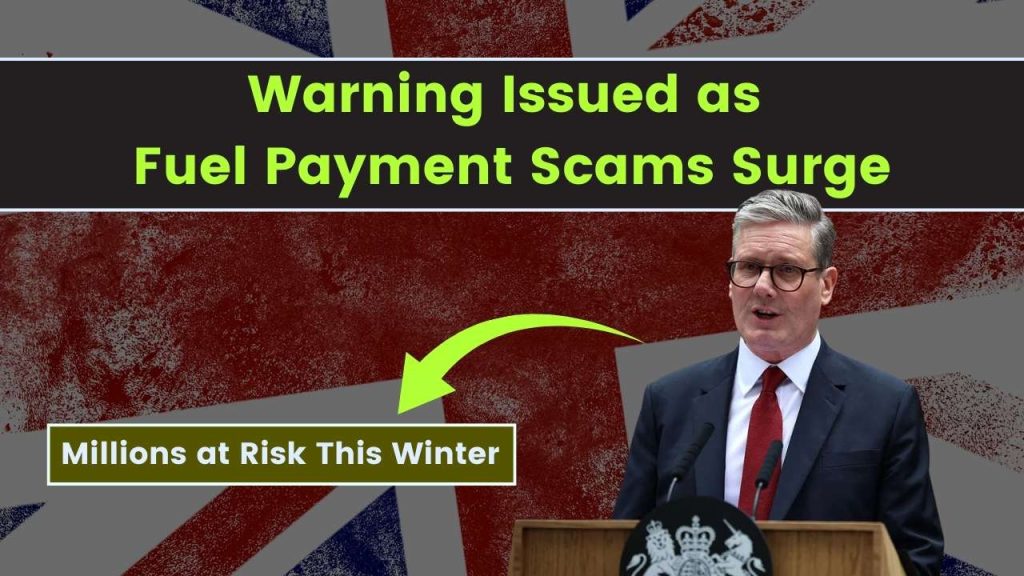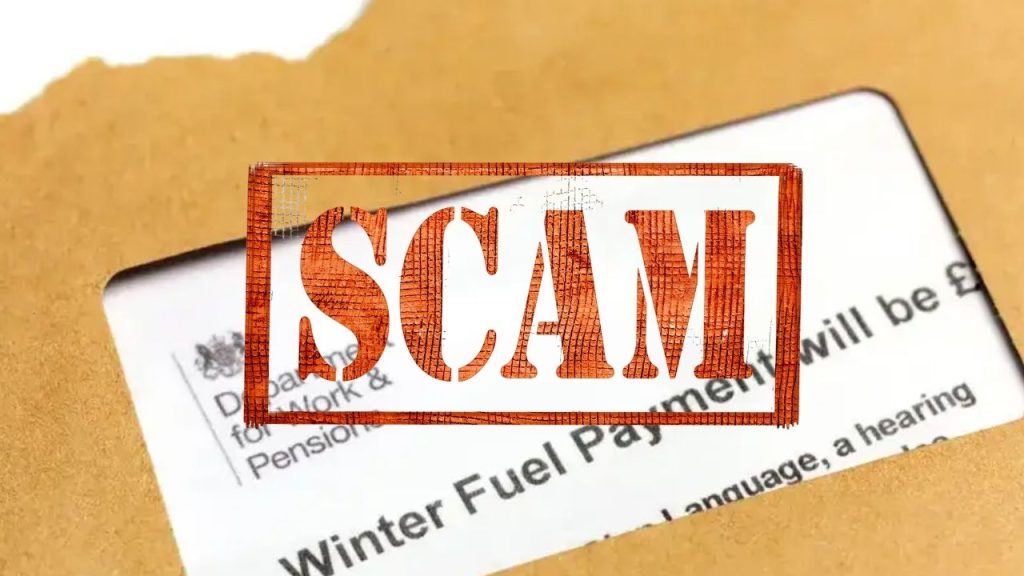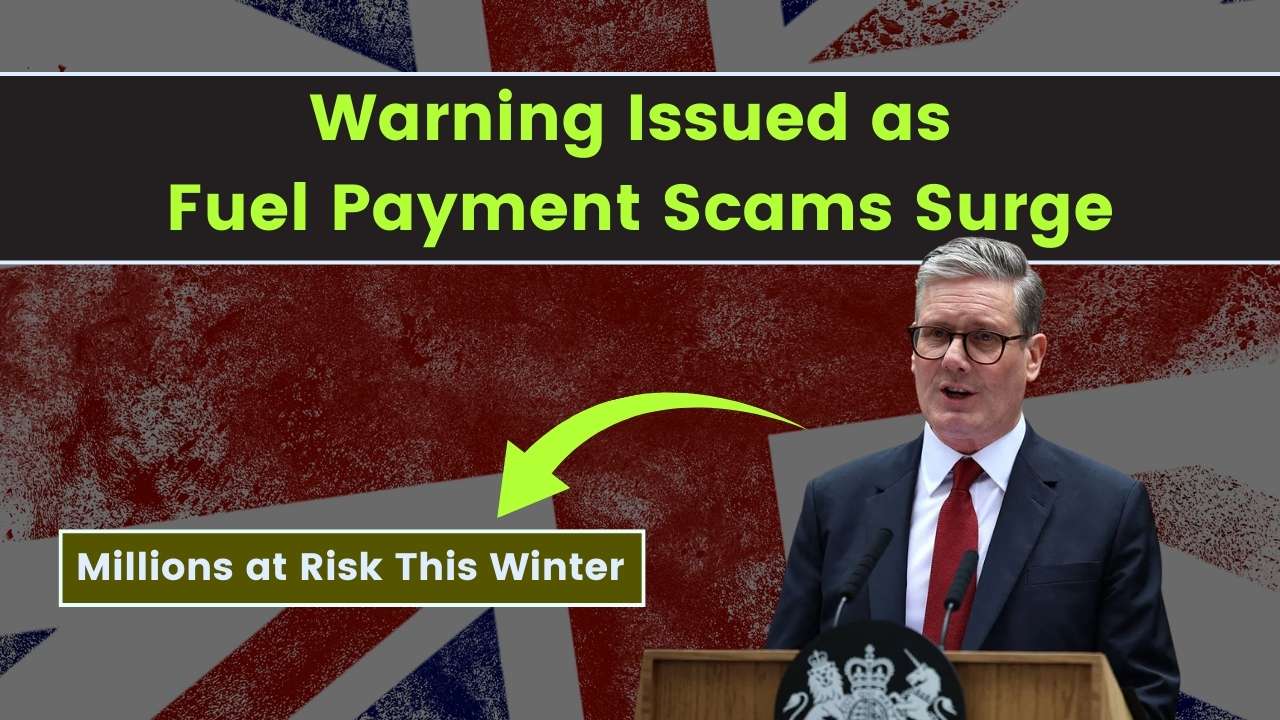As winter approaches, millions of people across the UK face a new and growing threat: fuel payment scams. These scams, which have surged dramatically in 2025, specifically target vulnerable groups like pensioners by exploiting their need for the Winter Fuel Payment—a government benefit meant to help with heating costs during the colder months. In this article, we will break down the issue so everyone can understand it, protect themselves, and stay safe from becoming a victim.

Winter Fuel Payment scams are deceptive messages—often texts or emails—sent by fraudsters pretending to be from trusted sources such as HM Revenue and Customs (HMRC) or the Department for Work and Pensions (DWP). The scammers try to trick recipients into giving away personal information or money by pretending to offer or request verification for the fuel payment. Due to the automatic nature of this government benefit, most people do not have to take any action, but scammers prey on confusion and urgency to steal sensitive data.
Warning Issued as Fuel Payment Scams Surge
| Aspect | Details |
|---|---|
| Who is targeted? | Pensioners and financially vulnerable individuals across the UK |
| Reports of scams (June 2025) | Over 15,000 scam reports received by HMRC |
| Fake websites removed | More than 4,600 phishing sites shut down by HMRC |
| Typical scam tactics | SMS phishing (“smishing”), fake websites, urgent messages demanding personal/banking details |
| Legitimate payment process | Most payments issued automatically; no applications required |
| Warning authorities | HMRC, DWP, Merseyside Police, Action Fraud |
| Official advice | Protect, Recognise, Report; never give details via text or email; verify all communication |
| More information | Official Winter Fuel Payment – GOV.UK |
The sharp rise in Winter Fuel Payment scams presents a real risk this winter, especially to pensioners and vulnerable groups. Being aware, cautious, and informed is the best defense. Remember, the Winter Fuel Payment is usually automatic—there is no need to apply or share your personal details through texts, emails, or suspicious websites.
Stay vigilant, protect your information, and report any suspicious contact immediately. By doing so, you help yourself, your family, and your community to stay safe from scammers eager to exploit this vital government support.
What Are Winter Fuel Payment Scams?
The Winter Fuel Payment is a UK government benefit to help older adults cover heating bills during winter, typically between £200 and £300. Most eligible pensioners get this payment automatically without needing to apply. However, scammers spread fake messages claiming you must apply or verify your details to get the benefit. These messages often contain malicious links to fake websites designed to steal information, such as bank account details or National Insurance numbers.

According to HMRC, in June 2025 alone, there were over 15,000 reports of scams related to Winter Fuel Payments, with hundreds of fake websites impersonating official channels taken down by authorities. Merseyside Police also noted a rise in scam reports exploiting recent government changes to payment eligibility and exploiting confusion about the process.
Common Scam Techniques
- SMS phishing (“smishing”): Text messages create urgency, directive to act immediately, often with a link to a fake website.
- Fake Websites: These sites mimic authentic HMRC or DWP pages but are fraudulent, designed to harvest personal and financial data.
- Unsolicited Contact: Scammers call or text pretending to be government officials, demanding sensitive information to “process” payments.
- Urgent Warnings: Messages pressure people to act quickly or risk losing their payment.
How to Spot These Scams: Practical Signs to Watch For
- Unsolicited Messages: HMRC and DWP do not send texts or emails requesting personal details or payments for the Winter Fuel Payment.
- Sense of Urgency: Scammers try to rush you into giving information or clicking a link.
- Suspicious Links/Websites: Examine URLs carefully; legitimate government sites end in gov.uk or related official domains.
- Requests for Sensitive Information: Never share bank details, passwords, or National Insurance numbers over text or email.
- Unexpected Contact: If you get a call, email, or text out of the blue about the payment, treat it with caution.
Kelly Paterson, HMRC’s Chief Security Officer, advises:
“Don’t be fooled by these attempts by scammers. If someone contacts you saying they’re from HMRC and asks you to transfer money or provide personal data, be on your guard.”
Step-by-Step Guide to Protect Yourself From Fuel Payment Scams
Step 1: Protect Your Personal Data
- Use strong, unique passwords for your email and online accounts.
- Avoid clicking on links in unexpected texts or emails.
- Do not provide personal or banking information through email or SMS.
Step 2: Recognise Legitimate Communications
- Remember: Winter Fuel Payments are automatic for most people. If you qualify, you should receive your money without applying.
- Genuine communication usually comes by post or through secure government websites.
- Don’t trust any messages claiming you must act immediately to get your payment.
Step 3: Report Suspicious Activity
- Forward scam texts to 7726 for mobile phone providers or to 60599 if claiming to be from HMRC.
- Send any suspicious emails to phishing@hmrc.gov.uk.
- Report fraud attempts to Action Fraud online or call 101 for police assistance if you are in Scotland.
- If you think you’ve given away information, contact your bank immediately to protect your accounts.
Why Are These Scams Increasing in 2025?
Several factors contribute to the rise in these scams this year:
- Government changes to eligibility rules for the Winter Fuel Payment have caused some confusion.
- Scammers exploit this uncertainty and use it to target vulnerable people, especially older adults.
- The automatic payment process means that scammers use false claims about needing to apply or update information to trick victims.
- The growing sophistication of phishing technology makes fake messages and websites appear very convincing.
What Are Authorities Doing?
HMRC, the DWP, and police forces across the UK work together to identify, close down fraudulent websites, and increase public awareness. In June 2025, HMRC removed more than 4,600 fake websites linked to these scams and continues to monitor the situation closely. Campaigns like “Stop! Think Fraud” help educate the public on spotting and avoiding scams online.
DWP Top-Up Payments Worth £519 Set to Hit Bank Accounts Soon: What You Need to Know
Going on Holiday? DWP’s New PIP Rule Could Cost You—Find Out Why
FAQs About Warning Issued as Fuel Payment Scams Surge
Q1: Do I need to apply for the Winter Fuel Payment?
A1: No. Most eligible recipients receive the payment automatically each year without needing to apply.
Q2: Can HMRC or DWP contact me by text or email regarding the Winter Fuel Payment?
A2: No. Official agencies do not contact you this way for payment verification or application.
Q3: What should I do if I receive a suspicious message?
A3: Do not click links or share personal data. Forward scam texts to 7726 and suspicious emails to phishing@hmrc.gov.uk.
Q4: What if I think I have been scammed?
A4: Contact your bank immediately to protect your accounts and report the fraud to Action Fraud or your local police.





